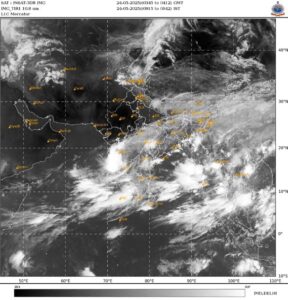What is the eligibility criteria to appear for NEET exam? NEET Eligibility Criteria 2023 – Upper Age Limit
NEET Eligibility Criteria – Age Limit, Marks & Qualification
What are the eligibility criteria for NEET?
Which syllabus is required for NEET?
NEET (National Eligibility cum Entrance Test) is a national-level medical entrance examination conducted by the National Testing Agency (NTA) for admission to undergraduate medical (MBBS), dental (BDS), and AYUSH (Ayurveda, Yoga and Naturopathy, Unani, Siddha, and Homeopathy) courses in India.
Here are the details regarding the exam pattern, syllabus, and eligibility criteria for NEET:
- Exam Pattern:
- Mode of Exam: Offline (Pen and Paper-based)
- Duration of Exam: 3 hours
- Number of Questions: 180 (Objective Type MCQs)
- Marking Scheme: +4 marks for each correct answer, -1 mark for each incorrect answer, and no marks for unattempted questions.
- Language of Exam: English, Hindi, Assamese, Bengali, Gujarati, Kannada, Marathi, Odia, Tamil, Telugu, Urdu
- Sections and marks distribution:
- Physics: 45 questions (180 marks)
- Chemistry: 45 questions (180 marks)
- Biology (Botany and Zoology): 90 questions (360 marks)
- Syllabus:
The NEET syllabus is based on the NCERT curriculum of Class 11 and Class 12. The syllabus includes topics from Physics, Chemistry, and Biology.
- Physics: Laws of Motion, Kinematics, Work, Energy and Power, Motion of System of Particles and Rigid Body, Gravitation, Properties of Bulk Matter, Thermodynamics, Behavior of Perfect Gas and Kinetic Theory, Oscillations and Waves, Electrostatics, Current Electricity, Magnetic Effects of Current and Magnetism, Electromagnetic Induction and Alternating Currents, Electromagnetic Waves, Optics, Dual Nature of Matter and Radiation, Atoms and Nuclei, Electronic Devices.
- Chemistry: Some Basic Concepts of Chemistry, Structure of Atom, Classification of Elements and Periodicity in Properties, Chemical Bonding and Molecular Structure, States of Matter: Gases and Liquids, Thermodynamics, Equilibrium, Redox Reactions, Hydrogen, s-Block Elements (Alkali and Alkaline earth metals), Some p-Block Elements, Organic Chemistry-Some Basic Principles and Techniques, Hydrocarbons, Environmental Chemistry, Solid State, Solutions, Electrochemistry, Chemical Kinetics, Surface Chemistry, General Principles and Processes of Isolation of Elements, p-Block Elements, d and f Block Elements, Coordination Compounds, Haloalkanes and Haloarenes, Alcohols, Phenols and Ethers, Aldehydes, Ketones and Carboxylic Acids, Organic Compounds Containing Nitrogen, Biomolecules, Polymers, Chemistry in Everyday Life.
- Biology: Diversity in Living World, Structural Organization in Animals and Plants, Cell Structure and Function, Plant Physiology, Human Physiology, Reproduction, Genetics and Evolution, Biology and Human Welfare, Biotechnology and Its Applications, Ecology and Environment.
- Eligibility Criteria:
- Age Limit: The minimum age limit for NEET is 17 years as of December 31 of the year of admission. There is no upper age limit for NEET.
- Educational Qualification: Candidates must have passed 10+2 or equivalent examination with Physics, Chemistry, Biology/Biotechnology, and English as core subjects from a recognized board.
- Minimum Marks: Candidates must have scored a minimum of 50% marks in PCB (Physics, Chemistry, Biology/Biotechnology) in the qualifying examination. For reserved category candidates (SC/ST/OBC), the minimum marks requirement is 40%.





